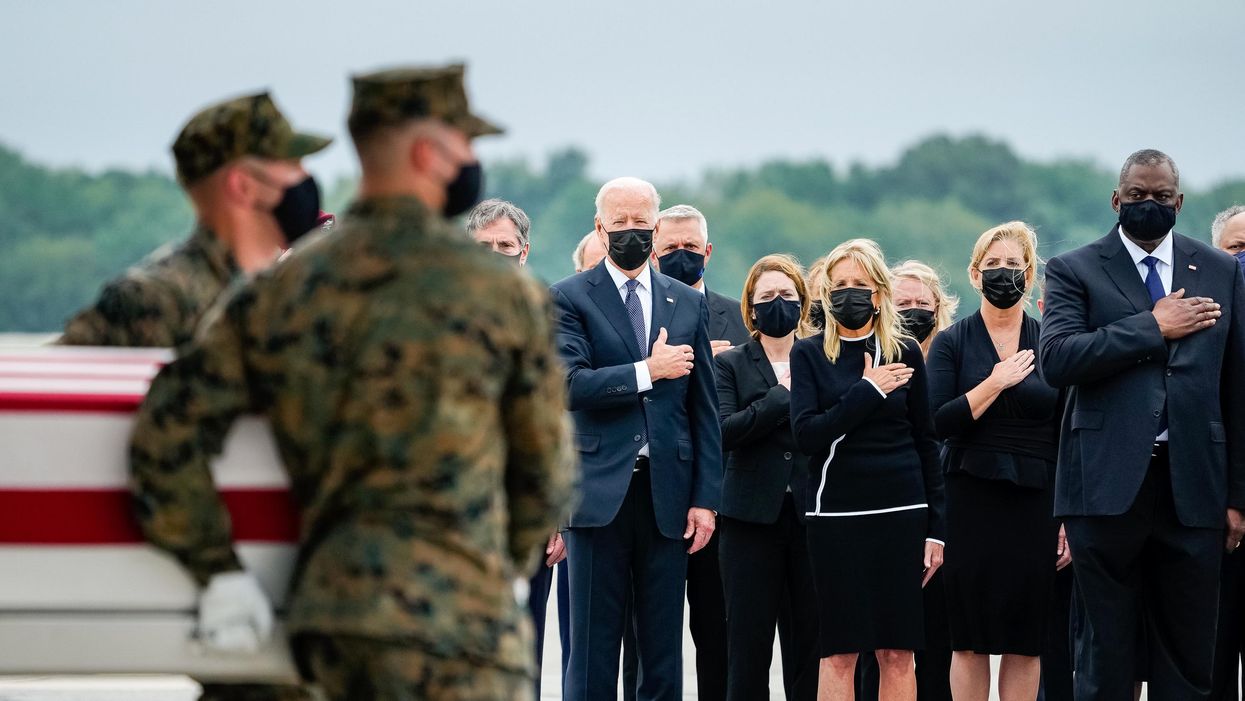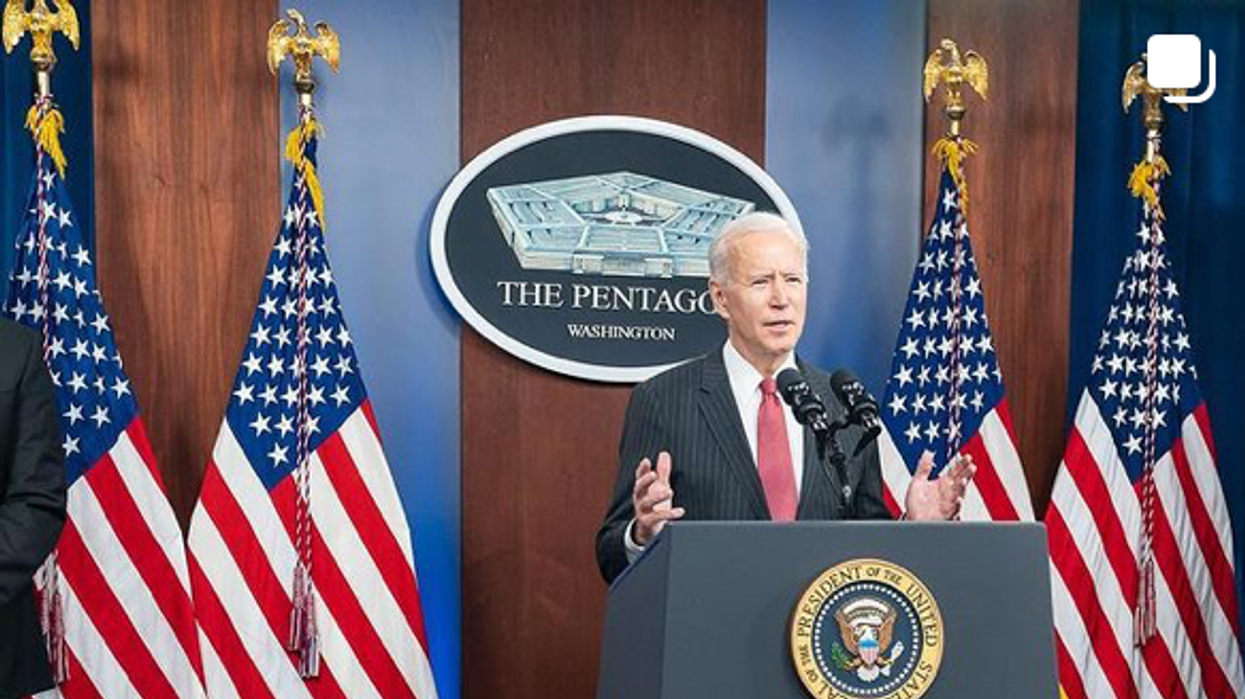In Afghanistan Biden Did What Was Right, Not What Was Easy
If Joe Biden were a typical politician, his choice on Afghanistan would have been easy. Political wisdom says you should never accept consequences today that you can postpone until after the next election, if not longer. Deceptive gimmicks and clever evasions are always preferable to painful solutions that pay off only in the long run.
Biden could have persisted in prolonging the stalemate. He could have quietly expanded our troop presence to hold the Taliban at bay. He could have blithely accepted the deaths of more American troops — and more Afghan civilians — to maintain the status quo.
Most Americans wouldn't have noticed or cared about the cost of continuing the war. His own party's progressives would have groused, but their priorities lie mainly in domestic policy, where Biden has been fairly accommodating. Republicans would not have made much of the issue.
But the president whose political skills earned him 36 years in the Senate and eight in the vice presidency chose to act with statesmanlike foresight. When it came to our longest military conflict, he could not countenance the option embraced by his three immediate predecessors.
George W. Bush, Barack Obama and Donald Trump failed to win the war and refused to end it. Instead, they dragged it out, each leaving the problem to the next occupant of the White House. They wimped out to avoid being accused of wimpiness. They put their political interests ahead of the lives and limbs of American service members.
Biden refused to avoid the inevitable any longer — in the full knowledge that the consequences would most likely be ugly and highly visible. He was the first president to act as though the buck really did stop with him.
His Tuesday address to the nation was a model of realism. He found two important lessons from our ill-starred effort. "First, we must set missions with clear achievable goals, not ones we'll never reach," he declared. "And second, we must stay clearly focused on the fundamental national security interests of the United States of America." Neither principle could justify staying in Afghanistan.
Critics accuse him of weakness, but there was nothing weak about his resolve to put a stop to a hopeless war. In the face of furious denunciations by people whose terrible judgment helped lead us into the deadly quagmires that have bogged us down for so long, he was bracingly immovable.
Biden understands better than his critics what the options were: Get out and accept the defeat of the Kabul regime or expand our military role to push back against an enemy that had been steadily gaining ground.
As he noted in his Tuesday address, the Trump administration had signed an agreement committing us to leave by May 1, in exchange for the Taliban's agreement not to attack our forces. Biden extended the deadline by four months, and the Taliban chose not to renege on its obligation. But any further postponement — or renunciation of the deal — would have meant a renewed and wider war.
It is understandable that critics would find fault with the chaotic, deadly, and heartbreaking endgame. But the possibility that Biden might have managed our departure better doesn't mean the departure was a mistake.
The shockingly rapid collapse of the government only proved how completely we failed in Afghanistan. You might say that the structure we created turned out to be a Potemkin village, but that would be too generous. A Potemkin village doesn't disintegrate overnight.
The Afghan military got vast amounts of money, training and equipment from the U.S., not for one year or five years but for 20. It could call on American bombers, helicopter gunships and drones to incinerate its foes. It enjoyed an embarrassment of riches. In resources, the Taliban were grossly outmatched.
But they had the most vital asset any fighting force can have: motivation. It was something our Afghan partners lacked. In the end, they didn't really lose to the Taliban; they forfeited.
The late William Safire once recalled that as a speechwriter for President Richard Nixon, one of his tasks was to say, "Mr. President — Do the popular thing! Take the easy way!" Nixon could then tell the public, "Some of my aides have suggested that I do the popular thing, that I should take the easy way. But I have rejected such counsel."
For a long time, we've had politicians who happily accepted such counsel. Biden is a different kind of leader.
Follow Steve Chapman on Twitter @SteveChapman13 or at https://www.facebook.com/stevechapman13. To find out more about Steve Chapman and read features by other Creators Syndicate writers and cartoonists, visit the Creators Syndicate website at www.creators.com









